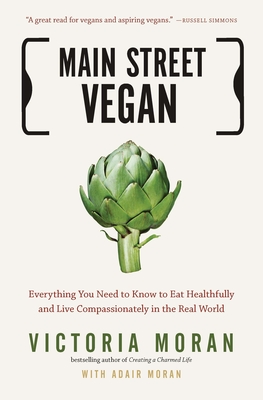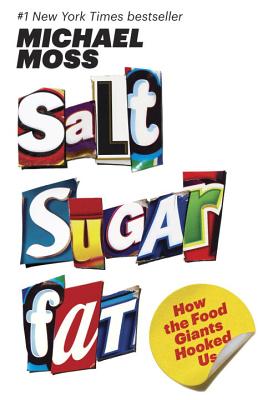Mary Roach’s books have been on my to-read list for a long time. However, when your job depends on knowing what’s new and great, reading an author’s backlist can be difficult to find time for. Naturally, when Roach’s newest book came out, I jumped at the chance to finally make time for this intriguing writer. Right now I’m kicking myself for not having read her other titles sooner. Everything they say about Mary Roach is true. She’s exactly what a great science author should be: easy to understand, incredibly interesting, and outrageously hilarious. Outrageously.
In a way, I’m glad I waited. Gulp is the perfect follow-up to Salt, Sugar, Fat; It details some of the science that Moss hinted at. Gulp is a scientific exploration of digestion, from start (the nose) to finish, (the toilet). It may sound as though the book could be disgusting, but I assure you, it isn’t. Roach makes her intentions clear from the start: she wants to fascinate the reader, not cause disgust (much). In this, she achieves her goal. From the first chapter I was completely engrossed, but never grossed-out.
One of my favorite things about this book were the footnotes she sprinkled liberally throughout the book. They are like little asides to the reader; not quite pertinent to the main subject, but too interesting to be left out. It’s as though I’m sitting next to her in biology class and she is passing me silly notes about the subject until the bell rings. I found them distracting at first, but soon started looking forward to them, as a great tool for sharing extraneous information, without derailing the whole book. Her humor rivals that of David Sedaris and her best jokes are in these little notes. Thankfully, I am not in biology class, so I can giggle freely while reading, which I think Roach probably did as well while writing.*
I do most of my reading during my lunch break at work, which can make reading about digestion and bowel movements less than desirable. However, true to her oath in the introduction, this book isn’t gross, it’s interesting. There is so much I never knew about the digestive system, or more importantly, so much I didn’t realize I wanted to know about the digestive system. Roach interviews scientists and professionals involved in everything from saliva, to flatulence, to Elvis Presley's doctor. It would seem that Roach has no limits to journalistic inquiry, even emailing the United States Conference of Catholic Bishops for more information about the possible history of holy water enemas being used in exorcisms.
I would recommend reading this book next to an internet-ready device, because in some cases, Roach can only begin to scratch the surface of the story. I spent a considerable amount of time reading about Horace Fletcher; one chapter simply isn’t enough to cover someone like him. The book isn’t about Fletcher, Komodo dragons, competitive eating, or any number of equally interesting things Roach talks about; it’s about the science and stories that make up the alimentary canal, thus prompting me to look further into many of the subjects Roach brings up. For someone with an endless appetite for information (example: people who look up one thing on Wikipedia, only to get sucked in for two hours), Roach’s writing style can be dangerous and time consuming, but also heavenly.
Now that I’ve finished Gulp, I can’t wait to dig into that backlist. If Roach can make digestion, gassiness, and saliva this interesting, imagine what she can do with cadavers and superstition. Irresistible!
*Her fascination with names that correspond to professions reached its peak with Dr. Crapo who coined the term “Dung Lung.”
Buy it indie!
Monday, May 27, 2013
Monday, May 13, 2013
Main Street Vegan by Victoria Moran
I saw Victoria Moran speak at Farm Sanctuary’s Annual Thanksgiving celebration for the Turkeys last year. As I enjoyed my tasty vegan Thanksgiving dinner, she talked about her years of vegan experience and of helping others go vegan. She is an amazing and positive person that one can’t help but immediately take a liking to and gravitate toward. She explained that before going vegan she was overweight and miserable. You’d never know it from seeing her now. She is vibrant, fit, and radiating happiness. She talked a little about her book and I made a mental note to order it the next day at work. My boyfriend was also impressed by her and said he would like to read the book when I was done with it.
After the first few chapters, which were the basic how-tos, I found myself getting sucked deeper and deeper into the book. Moran offers new insights to long-time vegans as well as great advice for beginners. There’s great information about nutrition, explaining the best ways to get all of the important nutrients we all need (yes, she explains where to get protein, please don’t ask that question ever again). She even inspired me to take up homemade smoothies for breakfast, which have instantly become a huge hit (hello endless energy in the morning!).
Each chapter includes fantastic recipes at the end, usually related to the topic of the chapter. There’s some comfort food in there, as well as some interesting new tastes to try. I’ve made several of the recipes from that book, most of them are simple, but still amazing. For a fast and easy treat I highly recommend Gena Hamshaw’s Collard Wraps (I used Swiss chard instead of collards because I like it better). When I make them for dinner we can never get enough. I’m going to refrain from listing all of the yummy recipes I tried from this book and just assure you that they’re delightful and easy to throw together at the end of a busy day.
Which brings me to my next point: this book is written for average people. Veganism isn’t just for people with private chefs (as Oprah may have us believing), or people who can drop $500 on the weekly trip to the grocery store. Veganism is for average people (like me!). It helps if you have some knowledge of how to operate your kitchen, which Moran does point out. On the bright side, cooking most of your meals from scratch won’t take as long as you think and will save you buckets of money, which is great for those of us on a budget. She also includes great shopping resources for non-food items and explains why it’s important to take your shoes, as well your dinner, into account when making the switch to veganism.
Moran lays out the transition to veganism as an easy and gradual path. She includes the usual information about why the meat and dairy industry are the most horrible things on the planet, but she also understands that most people can’t just drop all of their vices at once. She explains that doing less harm, on your path to doing no harm, is perfectly acceptable and understandable. For some people this transition may take a while, but that’s ok. I dabbled in veganism for years before actually doing it. However, once I jumped in, I stayed in. I’ve never been happier. And neither has Victoria Moran.
Buy it indie!
Monday, May 6, 2013
Salt Sugar Fat by Michael Moss
How do I even begin? This book is huge. Not physically huge, just a huge deal for your life. You need to read it. I could end with that, but you’ll probably want me to explain why. Fine...
Salt, Sugar, Fat is mind-blowing. Coming from me, that’s saying something. I read a lot of books about food and I try to avoid processed foods like the plague. We all know this stuff is bad for us, but we eat it anyway because it also tastes good. This isn’t an accident. Obviously food companies want their foods to taste good, but the extent to which they use salt, sugar, and fat to trick our bodies into eating more and more of it is criminal. They manipulate the ingredients, knowing it will cause people to overconsume. Any ideas of trying to manufacture healthier foods are immediately shot down by wall street and industry executives.
Each section of this book sucked me in even further and elicited even more shock. In fact, they are presented in the order that would create more shock as you go. We all know the dangers of sugar, though not a great deal about the science, so Moss starts with it. It’s no surprise that fat is not great for us. What I didn’t know is that putting fat in a food can raise your tolerance for sugar, which will allow you to eat a lot more before your body tells you to cut it out, if it ever does. He ends with salt. We know too much salt is bad. We know it leads to high blood pressure. But we have it under control. We’ve made an effort to keep our hands off the salt shaker during meals. Except, that doesn’t even matter. Processed food is teeming with added salts and our tolerance for salt is so high, that we don’t even notice how much we’re consuming. The most shocking part of the salt story is what happens to children raised with and without heavy loads of salt in their diet. Children raised with high salt diets, crave it in unprecedented amounts. Children raised with little salt, turn their noses up at salty foods. We’ve been raised to crave foods that are bad for us, and in the case of salt, we’ve done it to ourselves.
Moss did years of research and interviews for this book. It is not a science book, so any science in it is immediately easy to understand. He’s a great journalist who understands his readers. The book is made up of stories and anecdotes about the food industry, so that by showing us the smaller, more personal picture, Moss can give his readers the much bigger one. He shows us that the issue is not black and white. The food industry is making us sick and they are well aware of it, however, they can not stop themselves. Their customers are hooked on the food and now they will not settle for anything healthier. In a way, the only way out of this situation is government regulation. I’m not a huge fan of regulation, but prefer education. However, in the case of our health, perhaps the slower moving education road, will not be enough. We may have reached a point where the food giants can’t stop and education alone is not enough to have us stop ourselves.
After everything I’ve learned, reading this book still kind of made me want an Oreo Cookie.
Well, more like a Newman’s O.
Subscribe to:
Posts (Atom)


